Neon Drenched Horror
Wong Ping’s Fables 2
In the face of reality’s horror show and an Earth engulfed by flame, Wong Ping delivers pointed critiques, as laser focused as any satirist working in cinema.
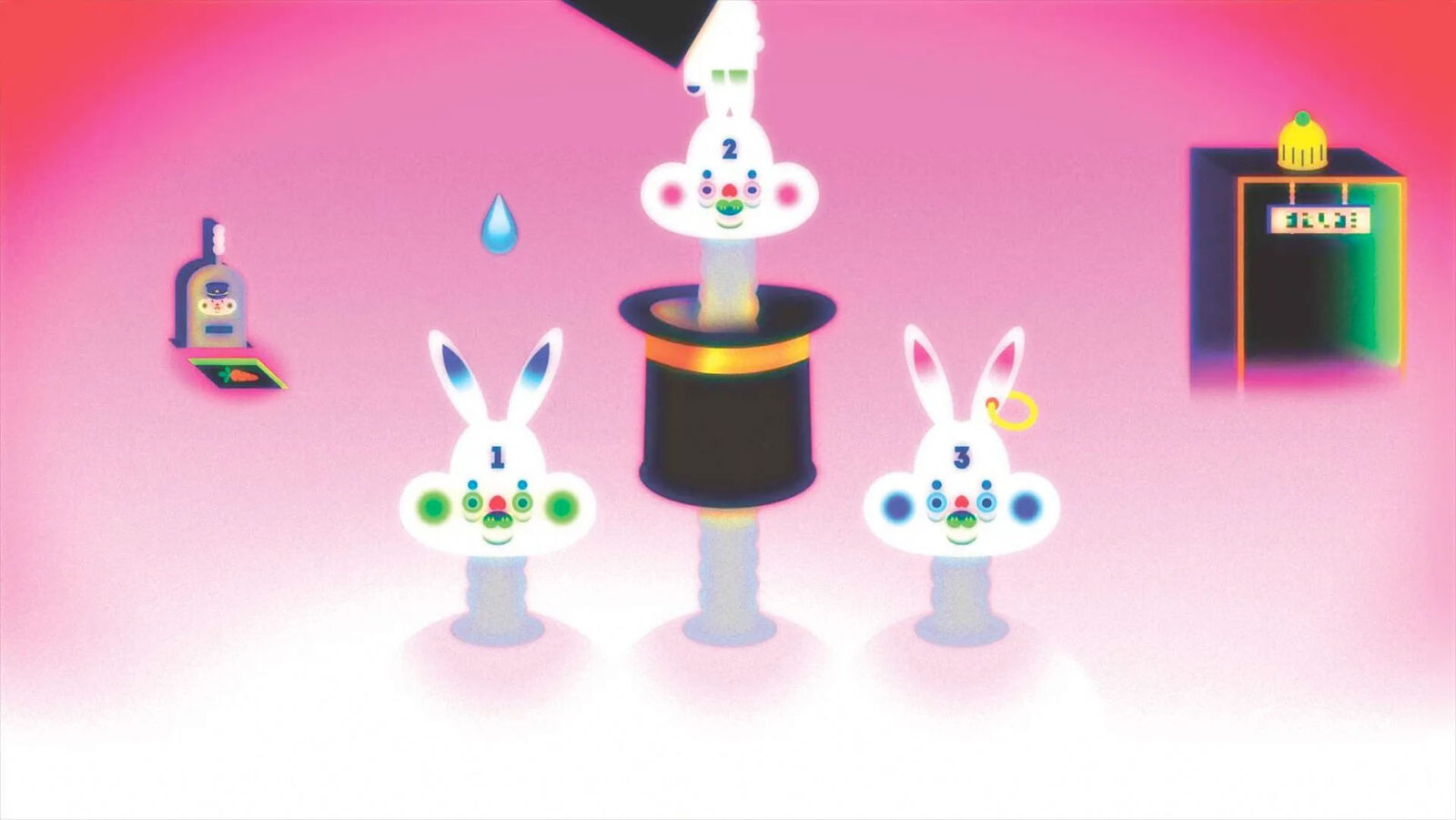
With the chaos of current times, it’s easy to forgive artists abstaining from grand political statements. However, if there is a filmmaker willing to face this era’s terrifying excesses, if not drenching themselves in its neon horror, it would be Wong Ping. In Wong Ping’s Fables 2, screening at Leiden Shorts, the Hong Kong animator delivers two interconnected tales, both set in urban climates of prisons and protests. Anyone familiar with Ping’s humour—explicit at the mildest, perverted at worst—will know what to expect. Having subjected viewers to scenes of people freezing their neighbour’s sweaty socks into ice-lollies (Stop Peeping), this is a filmography with few unbroken boundaries. Amongst the gory details, though, there are pointed critiques of our current system, as laser-focused as any satirist working in cinema.
Taking Aesop’s Fables as inspiration, Ping uses animals of different kinds to populate these surreal tales. The film’s first character, a committed social activist known as Cow, is imprisoned after goring a police officer to death during a protest. Mistaken for a dairy-producing female, he’s forcibly milked by fellow inmates, hoping the resulting liquid will ease drug withdrawals. Though surreal, Cow’s ordeal isn’t far from abuses suffered by protesters, particularly when correctional officers ignore his pleas for better conditions.
The director’s uncertainty at his place within Hong Kong’s protests and his role as a political artist has cropped up throughout his career. His 2019 gallery show addressed this by projecting his phone screen onto a wall, showing him ignoring texts from activist friends while distracting himself with BDSM porn sites. Interviewed from another exhibition, he appears conflicted about being in another country while friends back home endure police- crackdowns. Perhaps this ambivalence from the filmmaker makes Cow’s betrayal of his political ambitions more prescient. After leaving prison, Cow finds that his old jeans, a leftover from his activist days, have become a valuable fashion trend. Using his revolutionary ideals as selling points, he industrially re-produces the tattered clothing, using his spoils to gorge himself on “luxury grass rations”.
Betrayal and its consequences are central themes in the film’s second half. Unlike Cow’s commodifying of his beliefs, Ping explores a more familial form of dishonesty, looking at the relations between a conjoined triplet of rabbits. The head of each sibling (named number One, Two, and Three by their mother) is assigned a role in maintaining their shared body. One will eat, Two will drink water, and Three will breathe. This balance is initially interrupted by strange signals sent between the triplets’ brains. When One feels horny, Two suffers a hot tongue, while Two’s sadness gives Three incontinence. Secondly, while two siblings long for careers in law, the other rabbit dreams of card tricks and magic. The morbid direction of the triplets’ family plays out somewhere between Shakespeare and kitchen-sink tragedy. Their mother takes on twenty-four-hour shifts to care for her conjoined children, using her ability to sleep with open eyes to survive the long hours.
To the filmmaker’s credit, the cruelty suffered by his characters never descends into bleakness, thanks partly to the film’s Day-Glo palette of neon colour. Ping’s tendency to use bold, graphic shapes could be mistaken as corporate, part of a larger trend of animators adopting the commercial world’s flat compositions. But this would miss the filmmaker’s talent for using these popular techniques against themselves, revealing the rotting core beneath the salmon-pink surfaces. The way both stories are visually presented is likewise disarming in its simplicity. Each story is told from one angle, directing viewers’ eyes through moving parts and shifting lighting, giving the impression we’re peering into some animated stage-play. Elements such as water or fire are reduced to emoji-like icons, suggesting the characters’ realities and the digital domain of social media have merged into one.
As with Cow’s business ventures, the rabbits’ futures are likewise bound for failure. Torn apart by competing interests, the triplets’ fate is symptomatic of the film’s animated world, in which idealism is crushed against the competition of an unjust system. It’s ironic that each segment concludes with an upbeat moral message, titles flashing boldly onscreen: “Happiness is only real when shared” and “Striving for your own happiness, by all means, is already better than suffering with your family”. The cynicism of both statements, book-ending stories full of despair, seems to send attacks in multiple directions. On the one hand, Ping’s target could be the blind optimism of modern self-help culture (parodied perfectly by the ‘affirmations’ Instagram account). On the other hand, perhaps it hints towards mainstream animation’s tendency for sentimentality.
Each year, flooding the gates of film festivals, many animators vie for placements at Pixar by following the studio’s love of moralism: films where little children dream of piloting spaceships or innocent dogs desperately search for their owner’s affection. In his twisted fables, Wong Ping takes similar subjects of emotion (the cow who dreams of freedom and the rabbits’ longing for a better life) and turns them on their head. Instead of a world where our determination is rewarded, Ping presents a place where external forces of oppression are stronger than our passions. Despite his vulgarity, this is a filmmaker firmly on the side of the people. In the face of reality’s horror show and an Earth engulfed by flame, he’s sticking around for the fight.

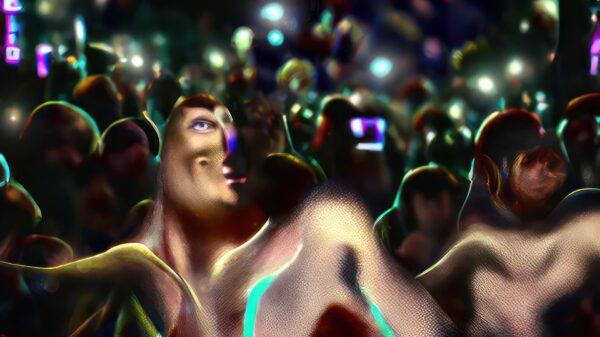
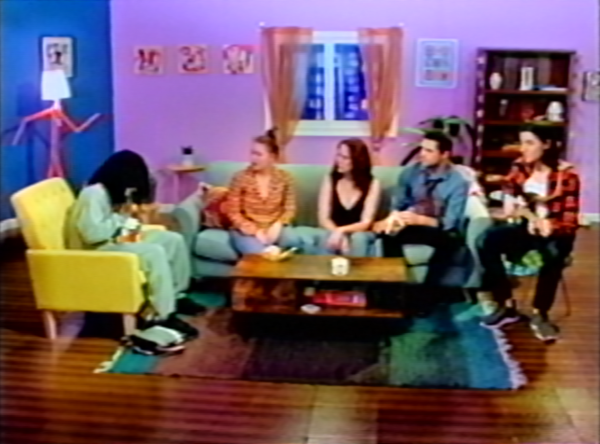
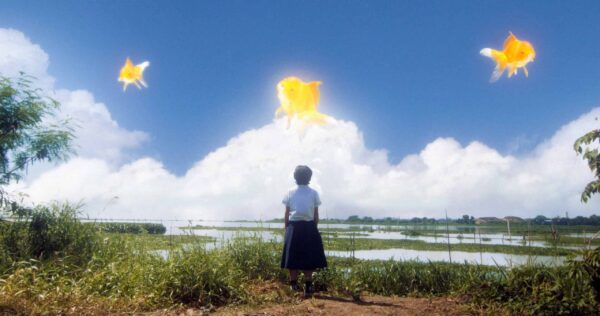

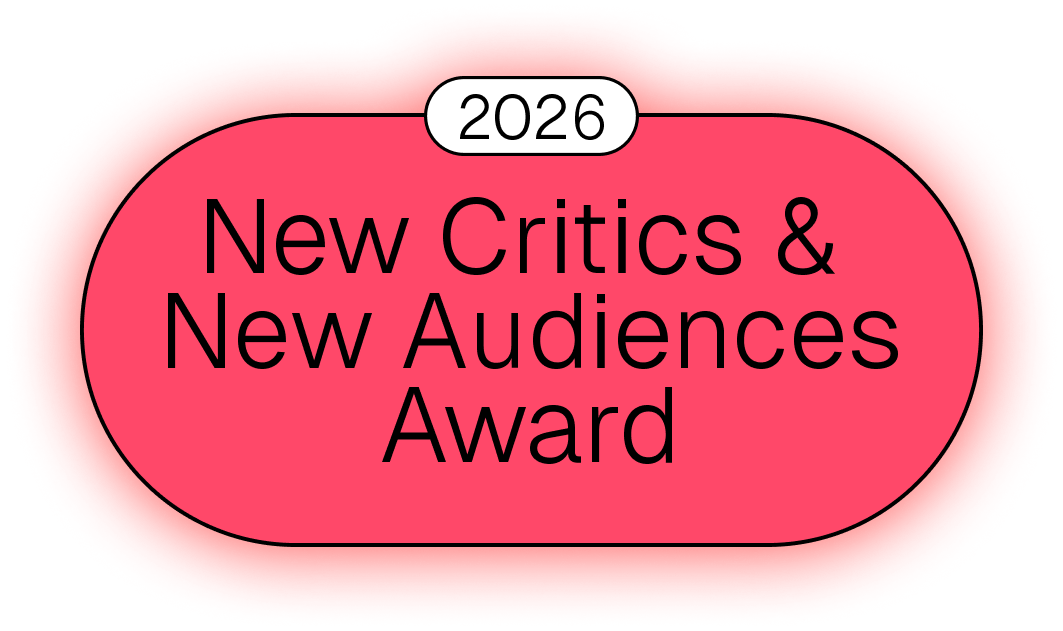
There are no comments yet, be the first!